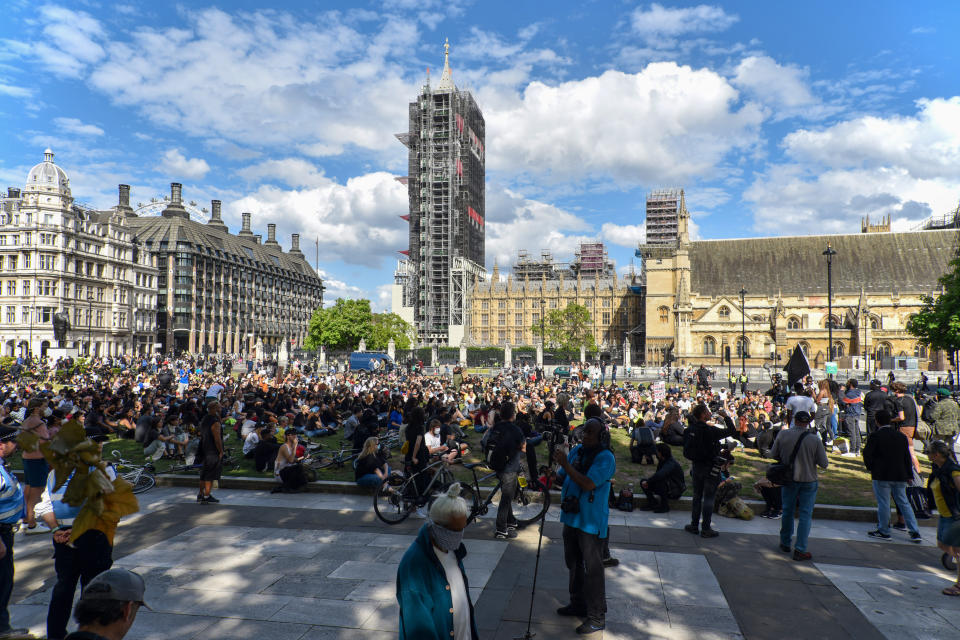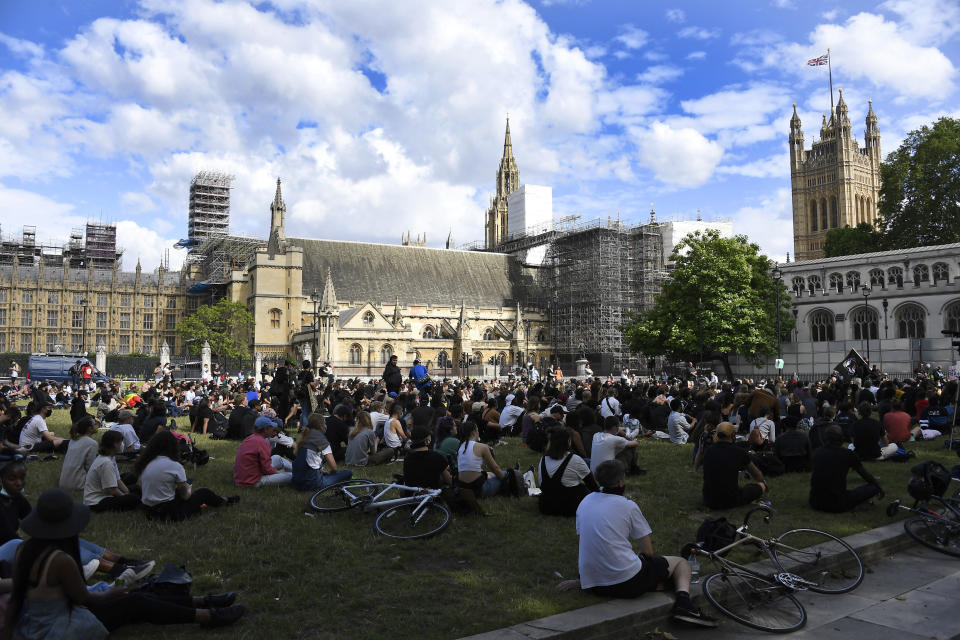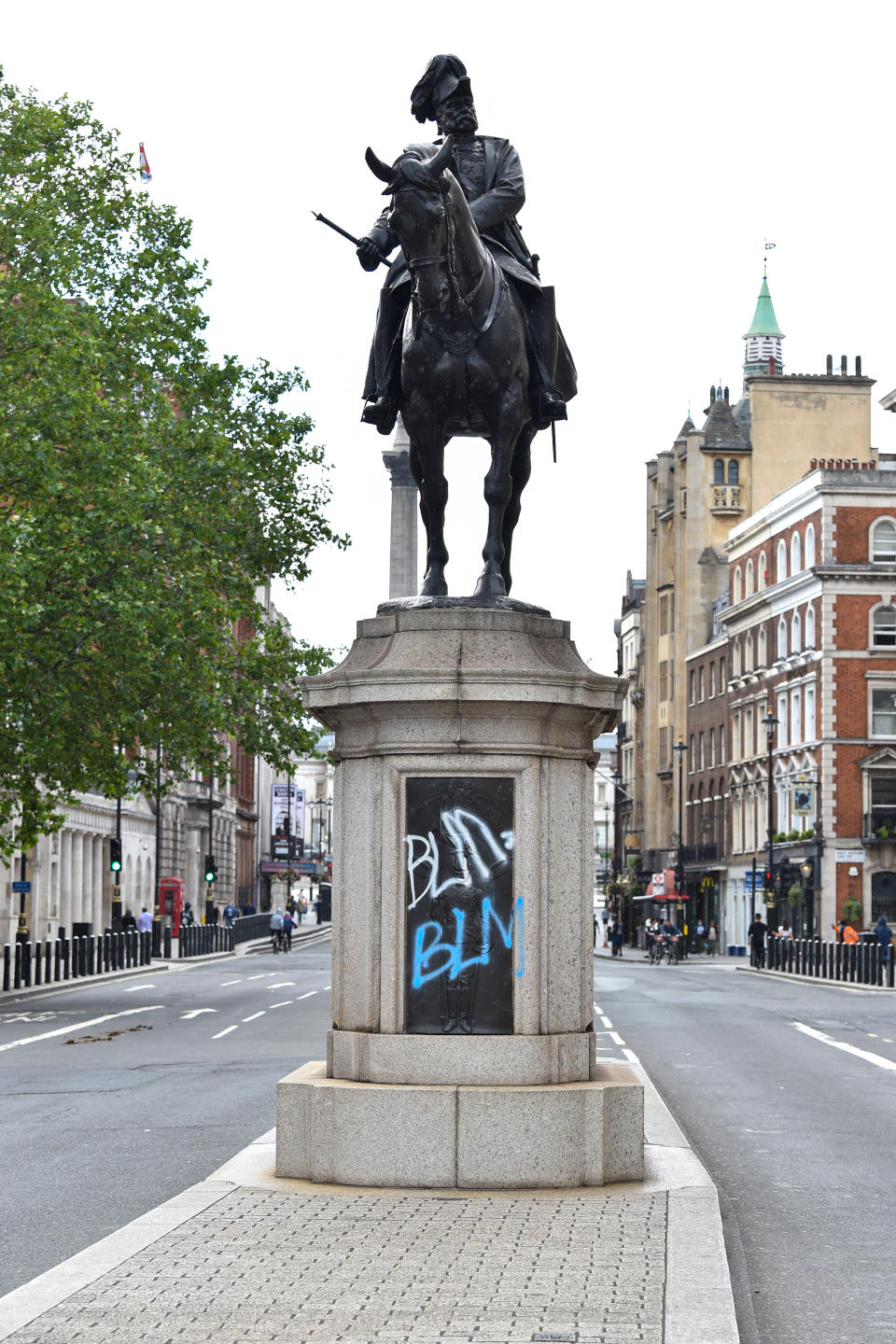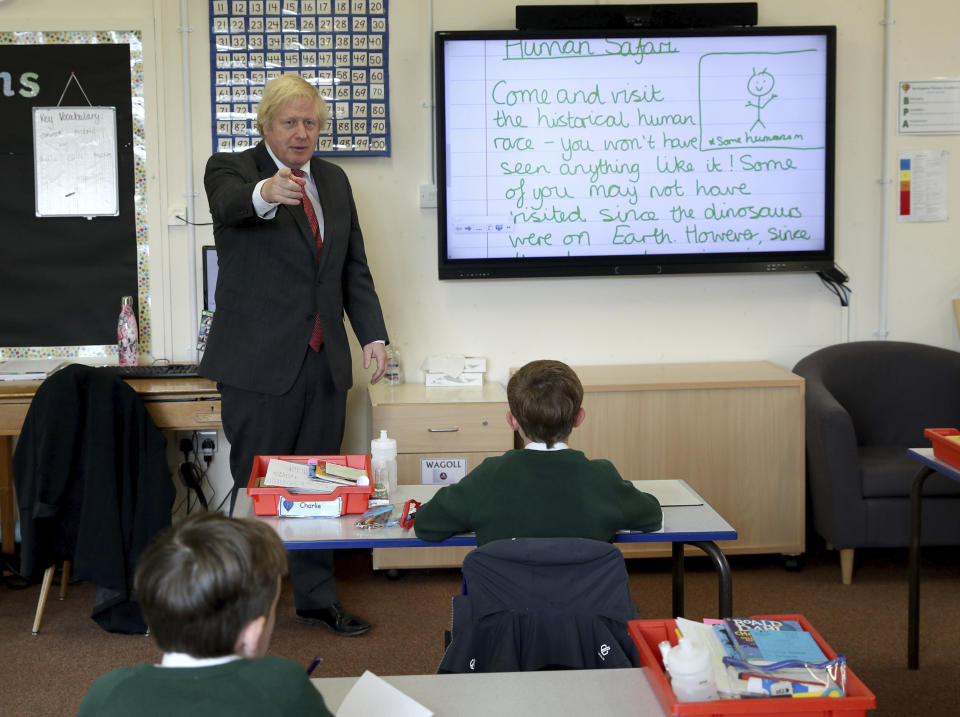Majority of black Britons think the Conservative Party is institutionally racist

The majority of black Britons believe the Conservative Party is institutionally racist, according to a new poll.
A CNN poll, conducted amid ongoing Black Lives Matter antiracism protests, found that 58% of black people and 39% of white people in the UK said the Tories are institutionally racist.
The survey of 1,535 British adults also found that 55% of black people don’t trust the Tory government to prevent another Windrush-type scandal, while 39% of white people believe the same.
During the scandal, at least 83 people who had come to the UK legally from Commonwealth countries were wrongly deported.



The poll follows largely peaceful Black Lives Matter protests in London, Coventry and Newcastle over the weekend – the latest in a series of antiracism demonstrations in recent weeks.
The UK protests began as support for protests in America after the death of George Floyd, but have shone a spotlight on racism in the UK.
Boris Johnson has acknowledged several times in the past month that there is racism in Britain.
He responded to the protests by announcing a government commission to look into racial inequalities, but immediately prompted criticism by saying he wanted to end “the sense of victimisation”.
“We have to acknowledge that when thousands of people march peacefully for Black Lives Matter, you can’t ignore that. I, as a leader, as someone in government, I can’t ignore the strength of feeling,” he wrote in a Telegraph comment piece.

He told broadcasters: “What I really want to do as prime minister is change the narrative so we stop the sense of victimisation and discrimination, we stamp out racism and we start to have a real sense of expectation of success.”
Labour’s shadow women and equalities secretary Marsha de Cordova described the comments as “condescending”.
Johnson has been condemned for racist comments in the past.
He once wrote that Muslim women who wore burkas chose to “go around looking like letterboxes” and in a 2002 article, also for The Telegraph, he gave an infamous description of black people in Africa bearing “watermelon smiles” and used the racist term “piccaninnies”.

 Yahoo News
Yahoo News 